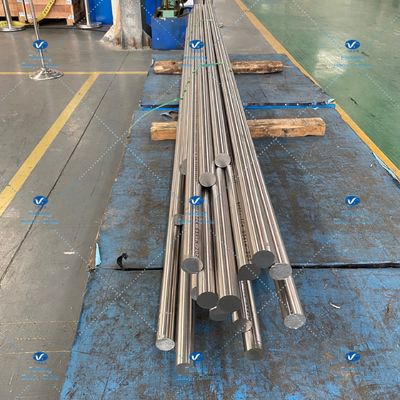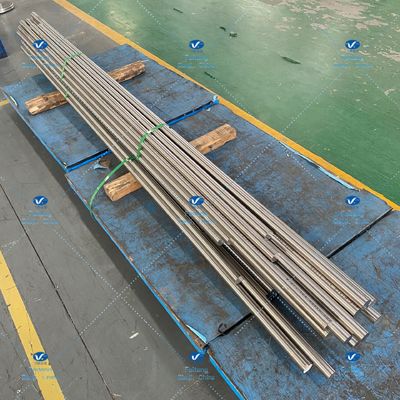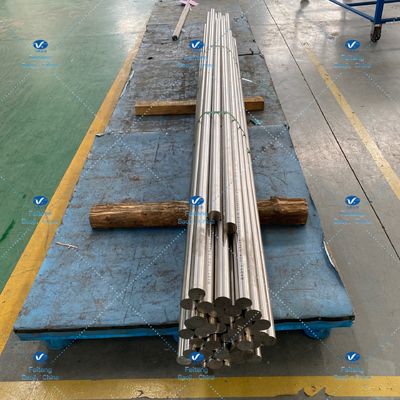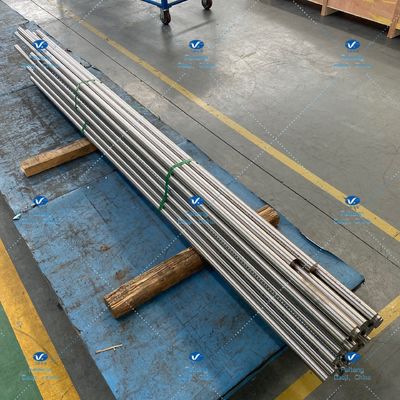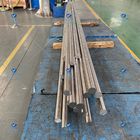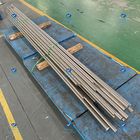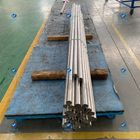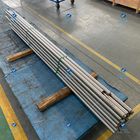GB/T19001-2016 High Purity Titanium Bars Dia 38mm 2000mm To 3000mm Length
| Place of Origin | Baoji, Shaanxi, China |
|---|---|
| Brand Name | Feiteng |
| Certification | GB/T19001-2016 idt ISO9001:2015 GJB9001C-2017 |
| Model Number | Titanium Bars |
| Minimum Order Quantity | To be negotiated |
| Price | To be negotiated |
| Packaging Details | Wooden case |
| Delivery Time | To be negotiated |
| Payment Terms | T/T |
| Supply Ability | To be negotiated |

Contact me for free samples and coupons.
Whatsapp:0086 18588475571
Wechat: 0086 18588475571
Skype: sales10@aixton.com
If you have any concern, we provide 24-hour online help.
x| Shape | Round | Size | φ38*2000-3000 |
|---|---|---|---|
| Name | Titanium Bars | Standard | ASTM B348-06 A |
| Package | Wooden Case | Grade | Gr5 |
| Advantage | Light Quality,High Strengthen Anticorrossive,Corrosion Resistance,acid And Base Resistance | Application | Industrial,Medical,exhaust Hanger,chemical,Condenser |
| Highlight | High Purity Titanium Bars Dia 38mm,Titanium Bars 3000mm Length,GBT19001 2016 Titanium rod |
||
Titanium Bars Gr5 ASTM B348-06 a 38OD*2000-3000 Titanium Forging Titanium Round Rod Titanium Products
|
Name |
Titanium Bars |
|
Grade |
Gr5 |
|
Transport Package |
Wooden case |
|
Origin |
Baoji, Shaanxi, China |
|
Port of delivery |
Xi'an port, Beijing port, Shanghai port, Guangzhou port, Shenzhen port |
| Shape | Round |
Titanium is a metallic chemical element, chemical symbol Ti, atomic number 22, in the periodic table of chemical elements in the fourth period, IVB group. It is a silver-white transition metal characterized by its light weight, high strength, metallic luster and resistance to wet chlorine corrosion. At the same time, titanium has plasticity, the elongation of high purity titanium can reach 50-60%, the shrinkage of the section can reach 70-80%, but the shrinkage strength is low (that is, the strength generated when shrinking). The presence of impurities in titanium greatly affects its mechanical properties, especially the interstitial impurities (oxygen, nitrogen, carbon) can greatly improve the strength of titanium and significantly reduce its plasticity. The good mechanical properties of titanium as a structural material are achieved by strictly controlling the appropriate impurity content and adding alloying elements. At present, there are two important indicators to measure the scale of a country's titanium industry: the output of titanium sponge and the output of titanium material. The output of titanium sponge reflects the production capacity of raw materials, and the output of titanium material reflects the deep processing capacity. Titanium industry has formed China, the United States, the Commonwealth of Independent States, Japan and Europe five major production and consumption.
Titanium bars have good thermal strength, good weldability and excellent corrosion resistance. Its disadvantage is low strength at room temperature. It is usually used as heat-resistant and corrosion resistant material. Titanium alloy is widely used in various fields because of its high specific strength, good corrosion resistance and good heat resistance. The industrial production of titanium began in 1948, and the demand of the aviation industry made the titanium industry develop at an average annual rate of about 8%. At present, the annual output of international titanium alloy processing materials has reached 4 million tons, and there are nearly 30 kinds of titanium alloy trademarks. Titanium alloy is mainly used to manufacture aircraft engine compressor parts, followed by layout parts of rockets, missiles and high-speed aircraft. In the mid-1960s, titanium and its alloys have been used in general industries, such as electrodes for electrolytic industry, condensers for power stations, oil refining and desalination heaters and environmental pollution control equipment. Titanium and its alloys have become an anticorrosion material.
Product advantages
1. Convenient handling.
2. Strong corrosion resistance
3. low fluid resistance
4. High mechanical strength




